In his compelling conversation with former fellow radical Di Zetlin - during which they explore the origins and direction of the protest movement that transformed a university campus (and ultimately, Queensland politics and society) in the sixties and seventies - Dan O’Neill goes to the essence of what makes these events such a peculiarly Queensland story.
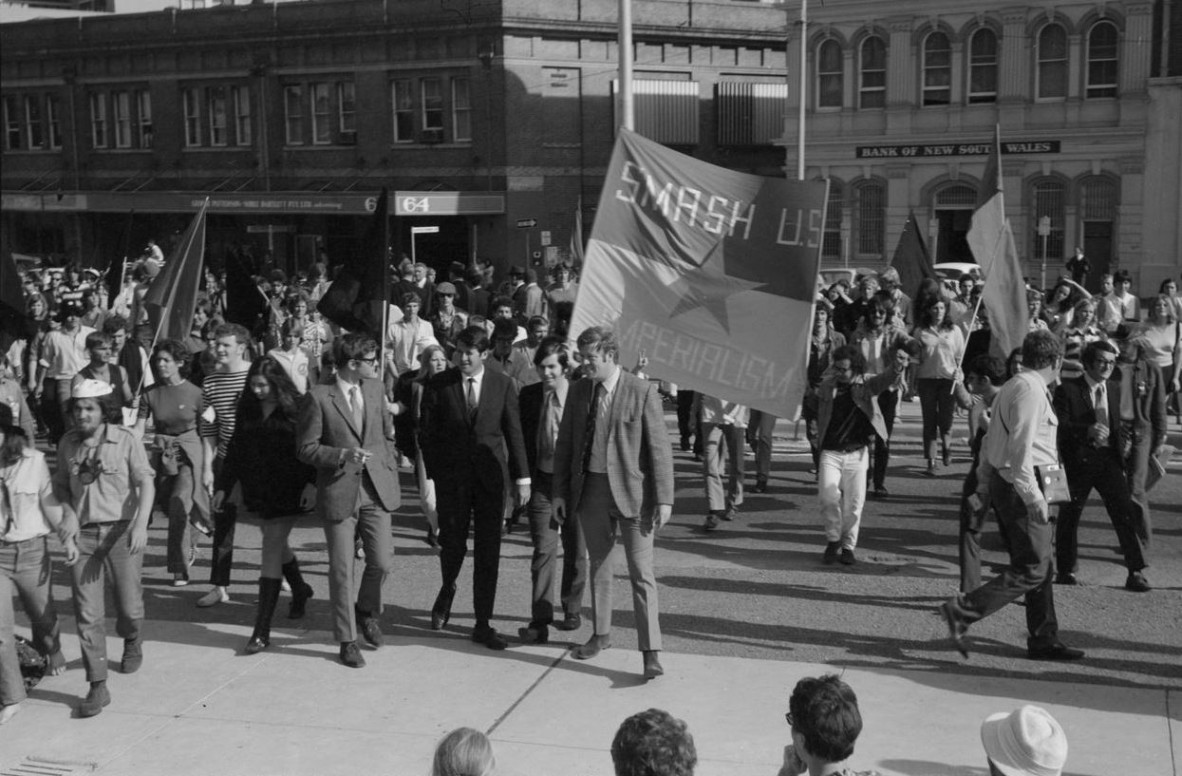
Dan recalls former prominent Labor Party politician Jim Cairns’ remark that “the radical movement on campus was more continuous and more serious both in theory and in practice than in anywhere else in Australia”. And he goes on to assess that paradoxically, “what will turn out in the lens of history to be the most interesting and radical student movement … was the one that occurred in the supposed sleepy background of Queensland”.
This conversation is one in a series of three wide-ranging and enlightening accounts which reflect on the dramatic events associated with a radical shift in political consciousness that occurred in Brisbane from the early 1960s. In this series of filmed oral history recordings Dan O’Neill and Di Zetlin talk about civil liberties action in Brisbane; Drew Hutton speaks to Adrian Skerritt about the history which informed a lifetime of protest activity; and Betty Hounslow and Tom O’Brien, remembering back to the early seventies, talk to ABC journalist and presenter John Taylor about the first instance of substantial, organised anti-freeway protest in Queensland.
State Library, thanks to the generosity of these former activists and protest leaders, has had a unique opportunity to capture the authentic voice of Brisbane’s radical past and to share that memory with the Library’s online audiences. Roughly fifty years down the course of activist history, the protagonists in these conversations have not lost their commitment to the social justice and civil liberties principles - or the deep integrity - which originally inspired them. A biographical note on each of the participants who contributed to this not-to-be-missed series is included at the end of this post.
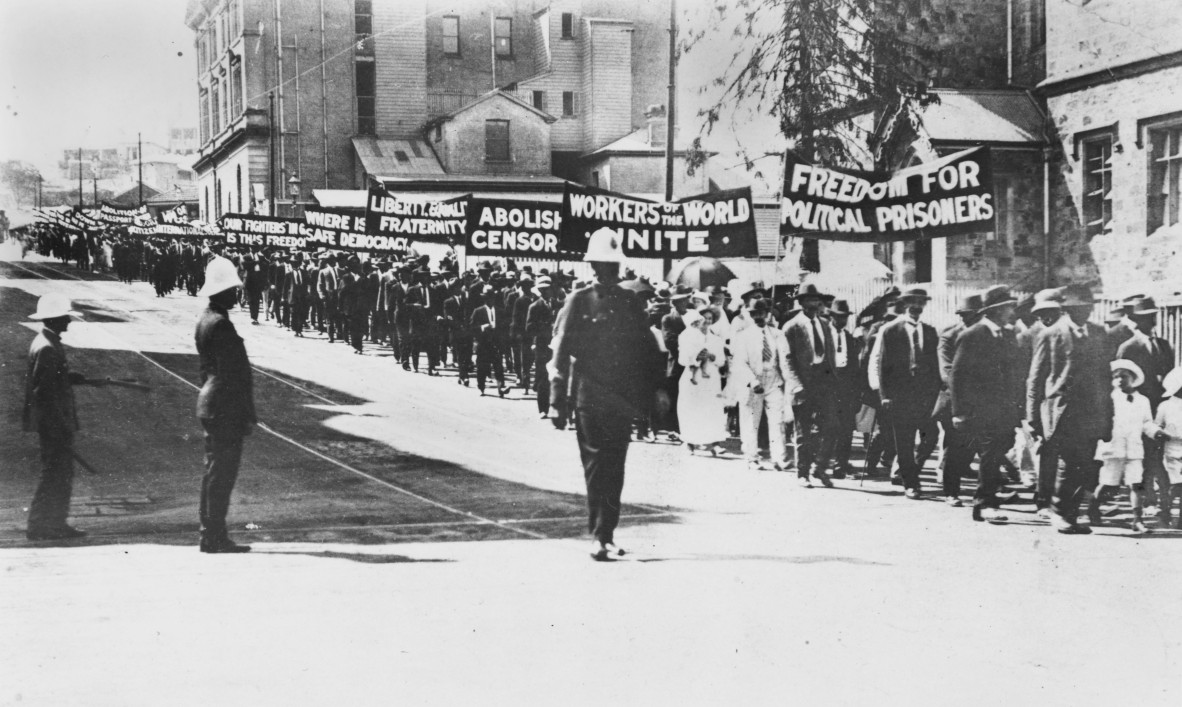
Brisbane’s long, interesting and distinctive experience of protest - and the critical impact of this protest on the social and political history of Queensland - has been celebrated by the Library in several significant exhibitions and is reflected in a number of areas in the John Oxley Library’s collections. In the broad spectrum of a protest history which stretches back to the early 1900s, the student led dissent which began in the 1960s, given that it represented the first large scale involvement of university students in serious national issues, is a deeply respected part of this longer story.
We learn from these interviews that what gave rise to the protest movement which emerged in the early sixties was a peculiar set of circumstances belonging to what has been loosely thought of as the Cold War era. Participants comment on the conservative legacy of the Menzies years, on the “stultifying” atmosphere on Queensland’s only university campus in the early to mid sixties and on their defeated expectations in relation to the “light, liberty and learning” and creative energy they hoped to find there.
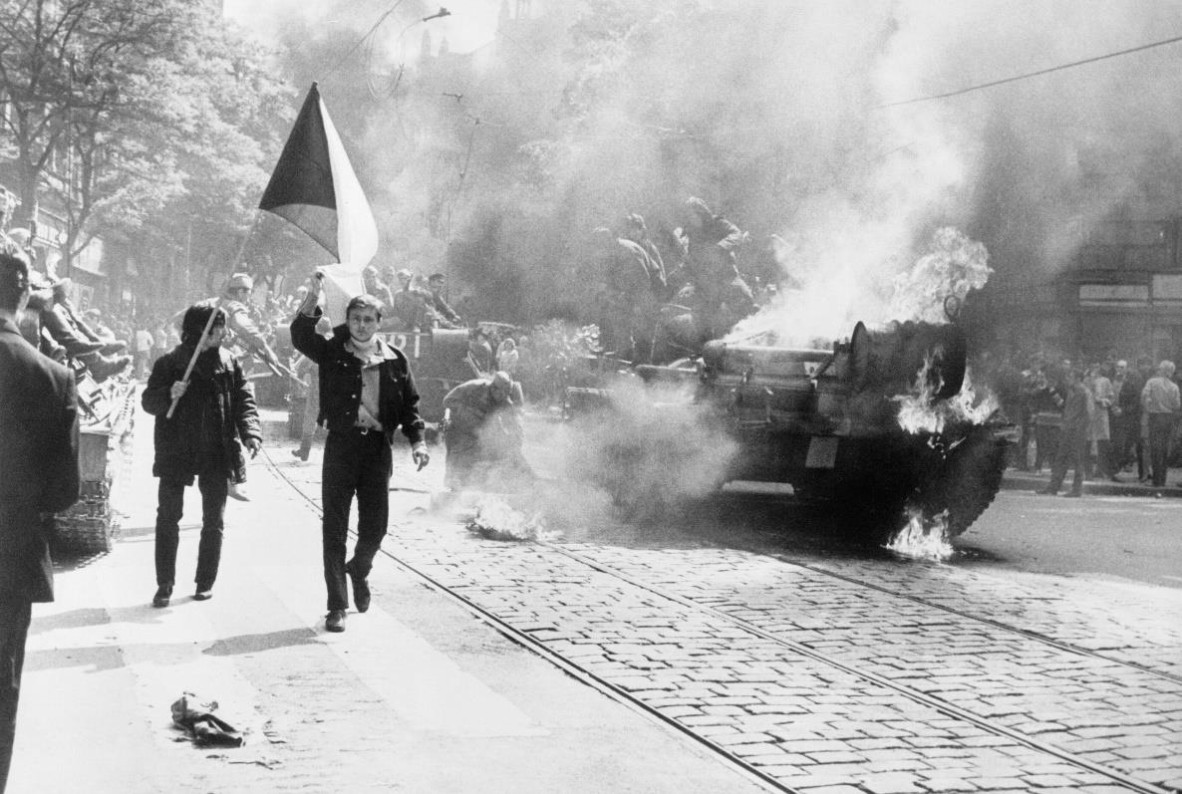
While it is generally agreed that the Vietnam War was a critical, galvanising circumstance which brought large numbers of students onto the streets of Brisbane and inspired the radical thinking of many, these accounts leave no doubt that their dissent went well beyond the pointed issue of conscription. Participants in these interviews speak of an emerging consciousness of - and interconnectedness with - overseas events, among them the Tet Offensive in Vietnam, the Paris riots of 68, the Prague Spring, the Democratic convention in Chicago and the influential theories (encapsulated in their 1962 political manifesto, the Port Huron Statement) of the American activist group, Students for a Democratic Society.
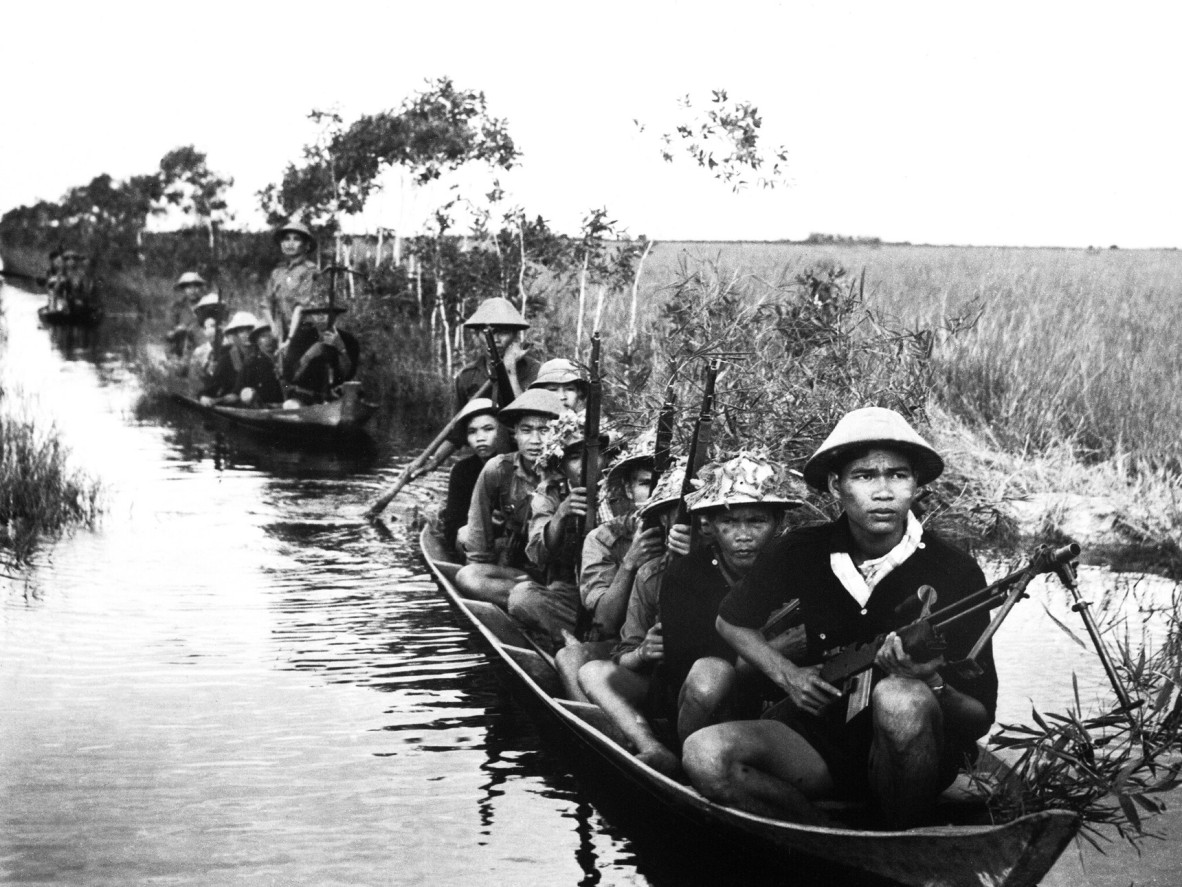
Speakers standing up on tables in the university refectory and at forum rallies nominally about Vietnam and conscription inevitably began to question the justice of the war being prosecuted by Australia’s major ally. Debate broadened into a critique of what came to be seen as American imperialism and of the capitalist system which supported it, a sophisticated prosecution of democratic ideals and the rights of the individual and a heightened concern about issues of racism and sexism.
The three conversations have in common a capacity to communicate the high drama of the rapidly developing protest campaigns of the sixties and seventies and to identify how student demonstrations acquired their distinctively Queensland dimensions. An obvious rallying point in this respect was the application of the State Traffic Act by Queensland Police and the extensive powers given to the latter by the Nicklin, Pizzey and Bjelke Petersen state governments in relation to street marches. In the face of mass arrests and instances of unacceptably rough handling of demonstrators by police, a critical focus of protests from 1967 onwards was on civil liberties generally and on the right to assemble and protest in particular.
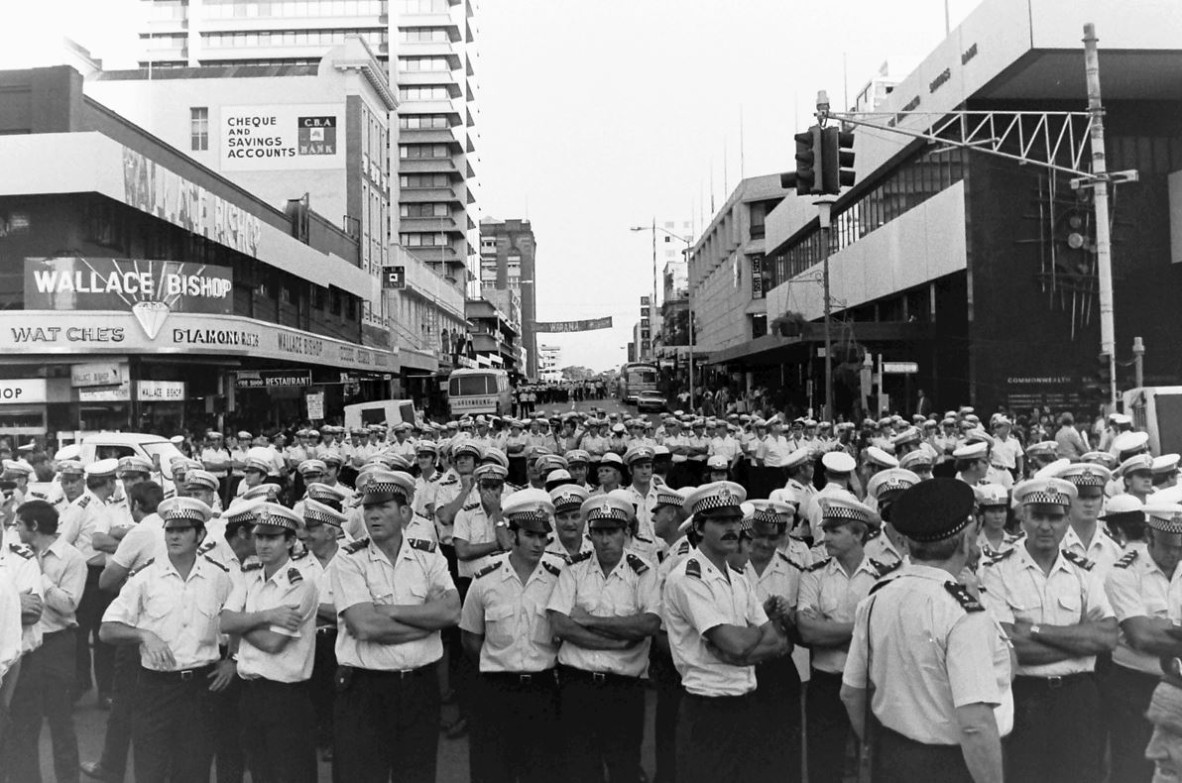
Queensland was in fact the only state in which police arrests were made under the Traffic Act during anti-conscription demonstrations. And the month long State of Emergency declared by the Bjelke Petersen government in anticipation of the 1971 anti Springbok demonstrations is a distinguishing event in Queensland’s protest narrative.
It is fascinating to appreciate how the sixties protests in Queensland quickly broadened, extended beyond the campus and spread to political, religious and other groups like the Civil Liberties Council and how, in the case of freeway protest, alliances were established between residents, community support groups and unions. Anti-freeway protest in Queensland (supported, interestingly, by both the Communist Party and the Catholic Church) is thought to have been, in Betty Hounslow’s words, “at the forefront of … resident action coalitions between residents and unions and green bans to protect the environment”.
The energy, courage and commitment to responsible action given direction by the Brisbane Freeway Protest and Compensation Committee is impressive and it is particularly interesting in that it crystallises a range of wider concerns which are still highly relevant today - the need to consider the environmental impacts of development and for responsible town planning, social justice issues, traffic congestion, adequate funding for public transport and the threat of pollution.
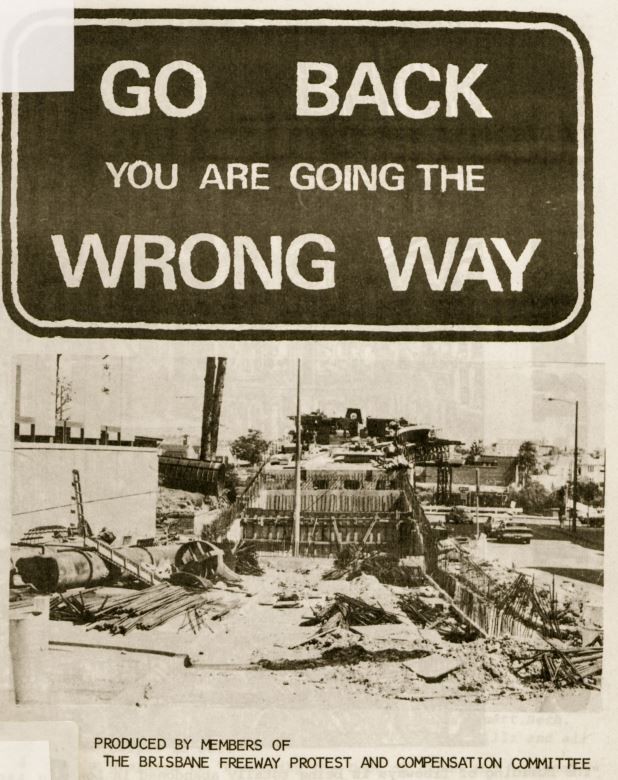
These conversations make reference to a number of landmark events and institutions which characterise the protest history in this era. Examples are the SDA or Society (transmuted from Students) for a Democratic Society, the revolutionary Self Management Group which campaigned from 1971 to 77, the radically original cultural experiment known as the Foco Club and the Red and Black Bookshop from where Drew Hutton embarked on a lifetime of dedicated protest. Also remembered is the 1970 publication of Up the Right Channels which ventured into uncharted territory in challenging both what was taught in university courses and the hierarchical structure of academic departmental administration.
And given graphic representation in these recordings, courtesy of some original film footage and archival images, are vivid snatches of the anti freeway protest of 1973 and of the eventful demonstrations of 67, 70, 71 , 77 and 78 which pitted police against protestors on the city streets.
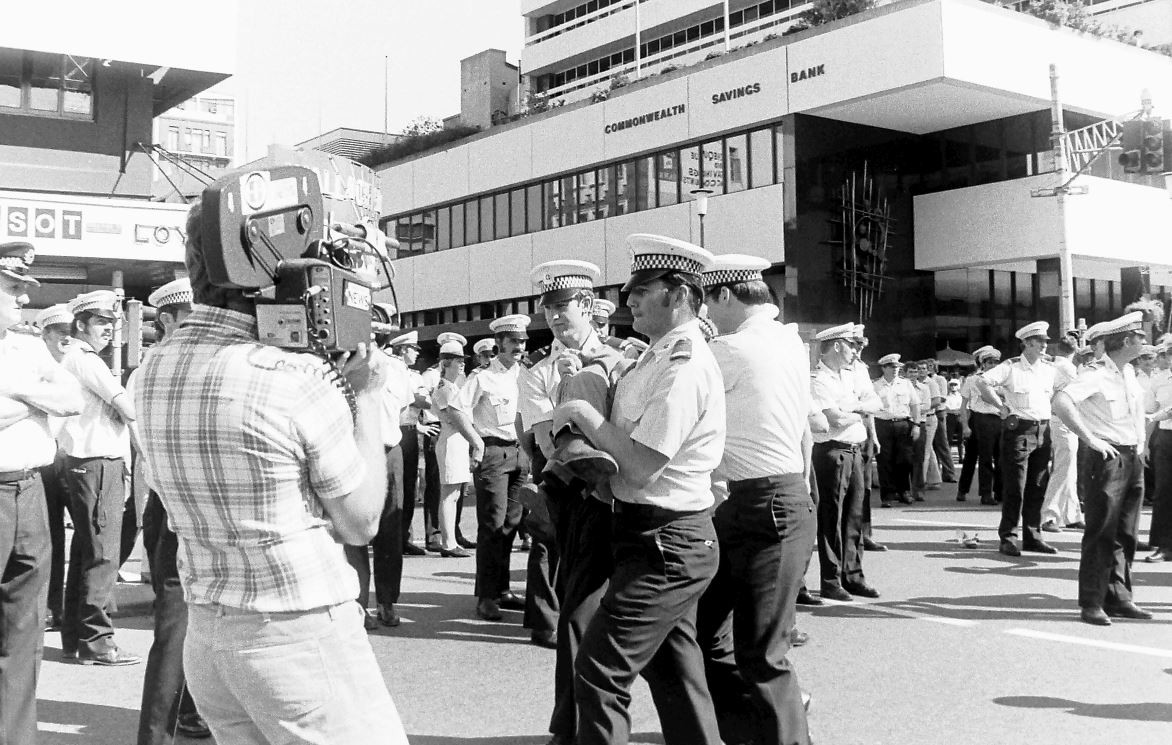
The Our Radical Past films bear witness to a series of events which, it is generally agreed, fundamentally displaced the thinking and attitudes of a generation. While the radical action committed to by these protagonists can be associated with a particular set of historical circumstances, that action and the philosophical idealism which underpinned it, have continued to inform our society and politics in important ways. It is indeed a privilege to hear about this time of extraordinary political engagement from those who were there, fighting for the revolution, half a century ago.
Libby Fielding, John Oxley Library, State Library of Queensland
The interviewees:
Dan O'Neill was a political activist and a leading voice of dissent in the struggle for civil liberties in Queensland in the sixties, seventies and eighties. He was particularly prominent as a spokesperson and organiser in the anti-Vietnam War movement in the late 1960s, in protest associated with the Springbok rugby tour and anti apartheid movement in 1971 and with Right to March rallies during the Bjelke-Petersen era in the 70s and 80s. Dan remains a deeply respected public intellectual and articulate spokesperson for progressive social and political causes.
Betty Hounslow has demonstrated a deep commitment to social and economic justice over many years. Betty’s advocacy in Queensland is associated with the anti-freeway protest movement and with her memorable role as a passionate and courageous young activist confronting baton wielding police in the film The Battle for Bowen Hills. In the early seventies Betty was a founding member of - and publicist for - the Brisbane Freeway Protest and Compensation Committee.
Since that time Betty has worked in women’s refuges and community legal centres in Sydney, spent 12 months with the United Nations in Cambodia, been Executive Director of ACOSS for 8 years and Vice-President of ACFID (the peak body for international aid agencies), served as Deputy Director of the Fred Hollows Foundation for a decade and until recently served on the board of the Asylum Seekers Centre and Union Aid Abroad (APHEDA). In 2013, Betty was recognised in the Queen's Birthday honours list for “significant service to the community through organisations promoting social justice, Indigenous health and human rights”.
Tom O’Brien who engages in a conversation with Betty, was a founding member of the Brisbane Freeway Protest and Compensation Committee which spearheaded anti-freeway protest in early 1970s Brisbane. The Committee’s objectives were to halt freeway construction and property resumption pending a thoroughgoing study of Brisbane’s transport options and to advocate for just compensation for residents adversely affected by freeway development.
Drew Hutton is well known as a highly effective and passionate campaigner for the environment, a committed social activist and a political candidate for the Greens Party. Drew was one of the founders of the Queensland Greens in 1990 and the Australian Greens in the following year and has contested seats for the Greens in local, state and federal elections. Since the 1960s Drew has been a key advocate and spokesperson for a number of high profile movements, among them the anti-Vietnam War campaign and campaigns focused on indigenous rights, uranium mining, nuclear disarmament, public transport, reform of marijuana legislation, pollution and the management of hazardous wastes. He helped to establish the Lock the Gate Alliance in 2010 and went on to spearhead a number of successful campaigns against the coal seam gas industry.
The interviewers
Di Zetlin, who interviews Dan O’Neill, became an activist during the 1960s as a University of Queensland student. Since then she has been active in the women’s movement and in the labour and trade union movements. She has also worked as a lecturer at the University of Queensland. Among Di’s numerous contributions to the cause of radical action, her creativity and energy are strongly associated with the advent of the Foco Club. In the words of Peter Gray and Frank Neilson, Foco, in the “mind numbing cultural desert of the 1960s” was established as “a multifaceted extravaganza incorporating music, poetry, political discussion, film, literature and theatrical performances”
Adrian Skerritt who interviews Drew Hutton, has been active in human rights and civil liberties campaigns in Brisbane since the late 1980s. He is a member of the Cloudland Collective, an activist group “committed to supporting workers, First Nations people and grassroots communities in their struggles against the abuses of capitalism”.
John Taylor who expertly anchors the discussion between Betty Hounslow and Tom O’Brien, is an ABC Radio presenter and award winning journalist who has been with the ABC since 1995. Between 2002 and 2006 John was the ABC's China Correspondent based in Beijing, and he was also host of the Queensland TV current affairs program Stateline. John has been a national current affairs reporter with TV's 7.30 program, and a radio current affairs reporter with AM, PM and The World Today.
Related blog post: Freedom, Freeways and Brisbane Protest in the Seventies
Comments
Your email address will not be published.
We welcome relevant, respectful comments.